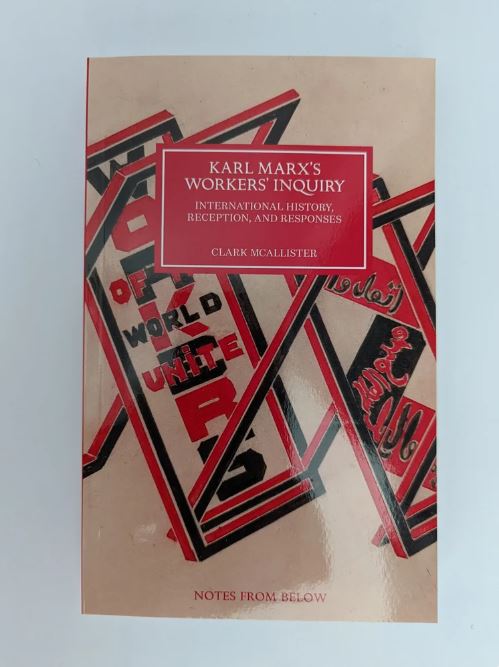Conference visits
Tim Stevenson
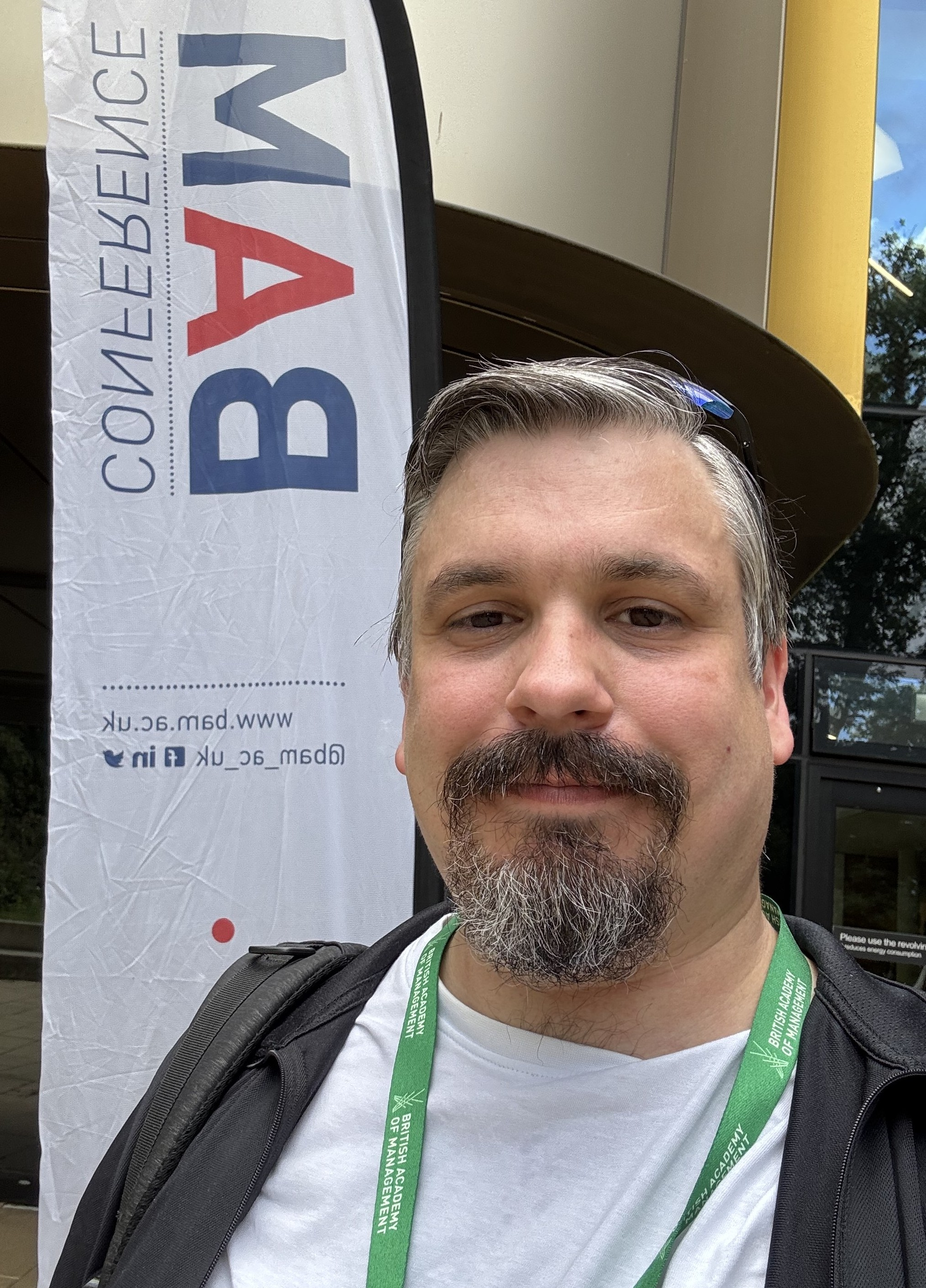
Tim Stevenson (pictured) attended the British Academy of Management (BAM) annual conference at the University of Kent in early September.
He presented his paper on a ‘Review into the changes in the barriers and challenges of communication in remote project teams due to the COVID-19 pandemic’.
Tim said: “This was a great opportunity to share my research with peers in academia and gain feedback from the project management community which was very positive as a number of organisations are seeing very similar issues. I have been asked to collaborate on research in the same field; very exciting times ahead!”
Mia Li
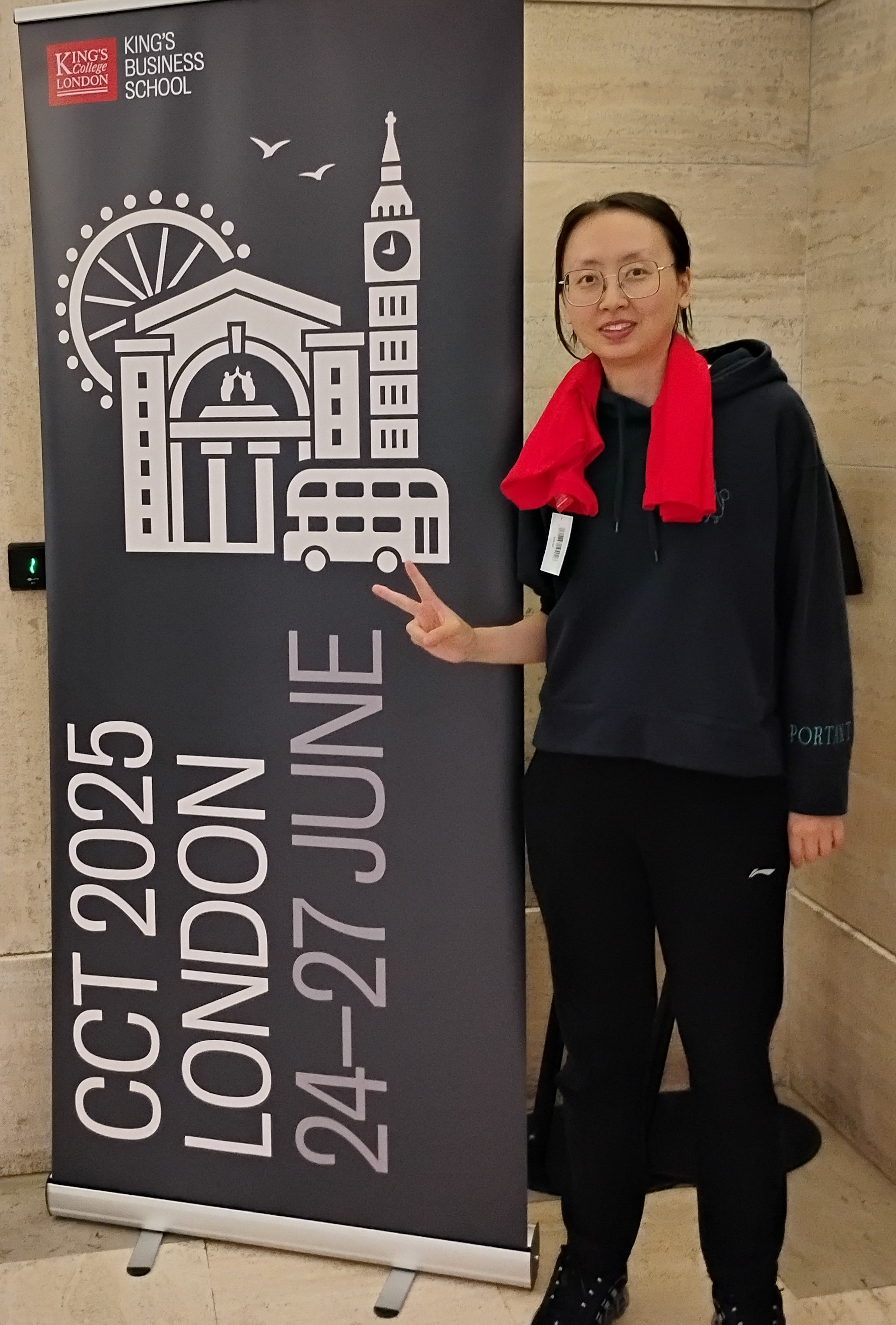
Mia Li (pictured) said volunteering at the 2025 Consumer Culture Theory (CCT) conference was ‘an inspiring and fulfilling experience’.
She said: “I enjoyed working with the organising team from King’s Business School and other volunteers to keep everything running smoothly, while also connecting with participants from diverse backgrounds. I attended several sessions that gave me fresh inspiration on the intersection of branding, social movements, and spaces.
“These talks not only sparked new ideas for my own work but also encouraged me to reflect on the process of doing academic research and why it matters. Being part of such a vibrant exchange of ideas reminded me of the value of collaboration, curiosity and shared learning. I am grateful for the opportunity to contribute and to learn so much in return.”
Louis Dawuda
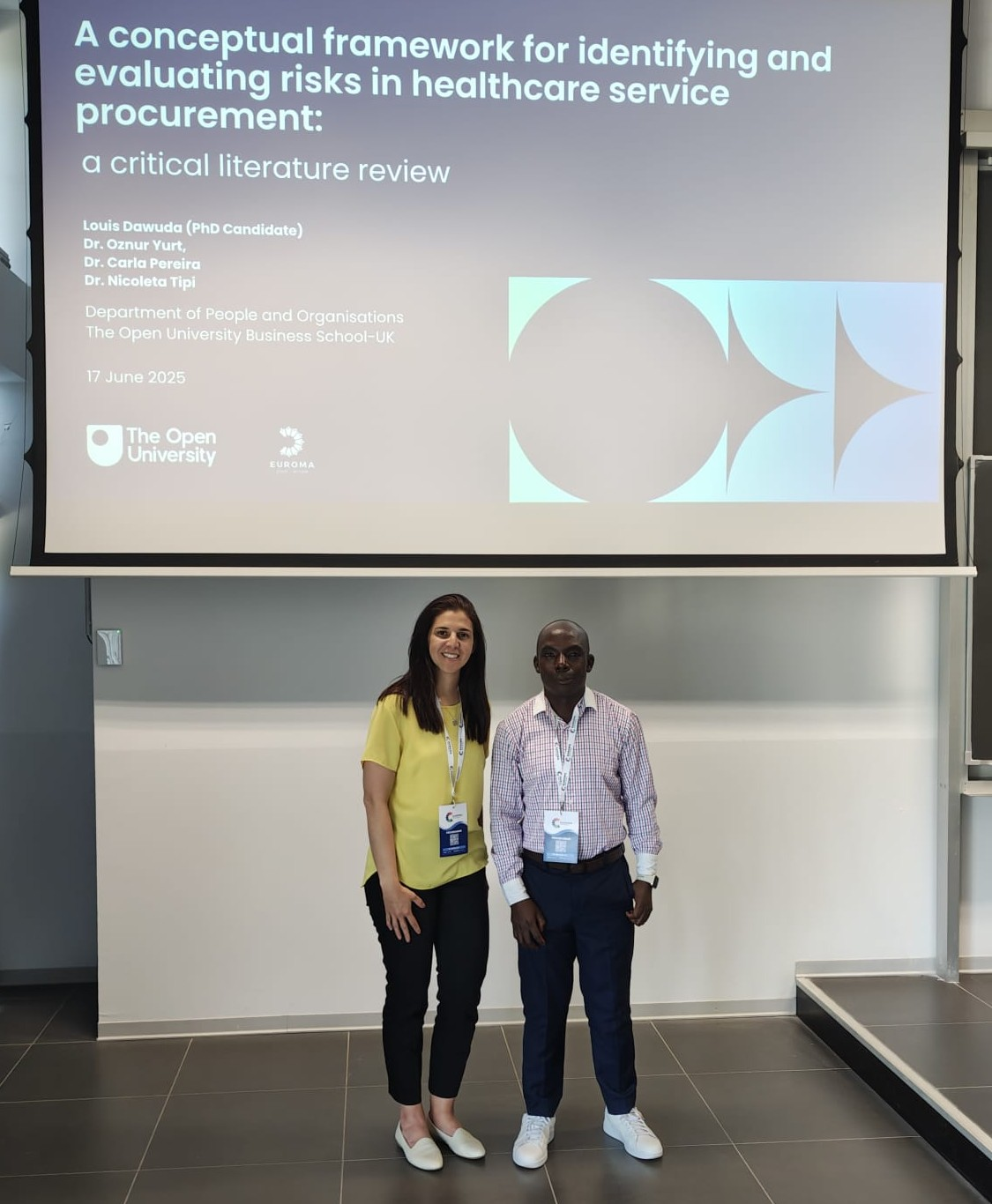
Louis Dawuda presented his PhD research at one of Europe’s most prestigious conferences. Together with his supervisor, Carla Pereira (pictured), they attended the 2025 European Operations Management Association (EurOMA) at the Politecnico di Milano in Milan from 13-18 June.
He said: “My paper was among the (548) research papers presented during the conference. It was incredibly inspiring to see a diverse community of researchers in operations and supply chain management come together to discuss ideas, challenge perspectives and make new connections.
“The sunny weather in Milan made it interesting to explore the city’s architectural heritage and fashion attractions, adding an exciting element to my conference experience.”
Pankaj Alexander
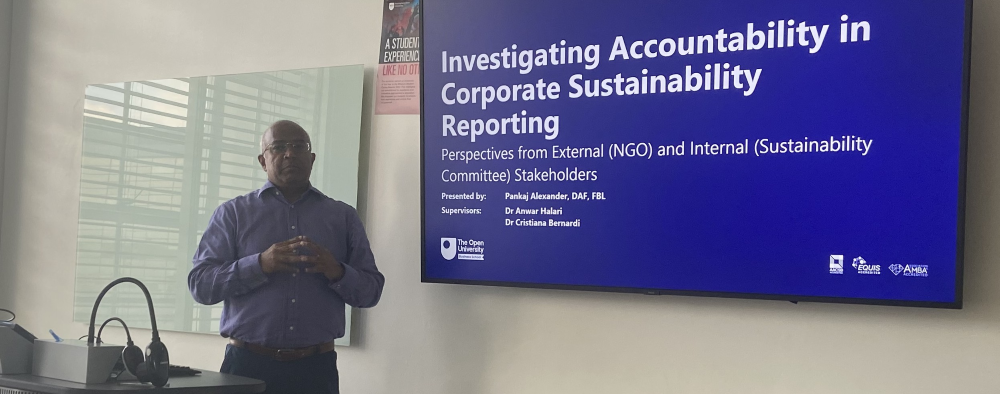
Pankaj Alexander (pictured) presented his research at the British Accounting and Finance Association (BAFA) Northern Special Interest Group (SIG) annual conference at Nottingham Trent University in May.
He said: “It was great to connect with my peers and academics who had been mentored and / or co-authored a paper with my supervisors (Dr Cristiana Bernardi and Dr Anwar Halari). I received interesting questions around my research and made some connections as well.”
Prof Jim Haslam delivered an interesting keynote on ‘possibilities for external accounting theory by returning to Goffman’. This was followed by a ‘meet the editors’ section where Profs Andrew Stark, Jia Liu and Edward Lee shared their experiences of what journal editors are looking for and how to get published.
Zaineb Bouharda
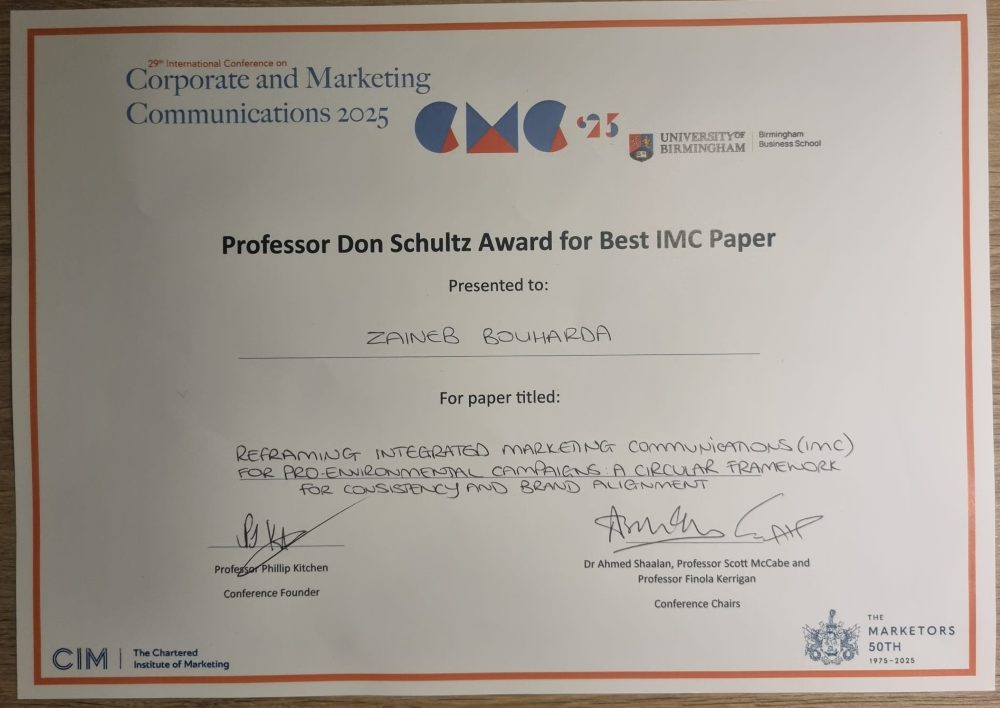
Zaineb Bouharda was ‘incredibly honoured’ to receive the Don Schultz Award for Best IMC Paper at the International Conference of Corporate and Marketing Communication. This two-day conference just before Easter 2025 at the University of Birmingham Business School focused on AI in Marketing. The best paper award recognises work the committee believes the founder of Integrated Marketing Communications or IMC, the late Professor Schultz, would be proud of. Zaineb said: “I’m truly grateful for the recognition, and inspired by the rich discussions on the future of marketing communications in the age of AI.”
Gulfam Tasnim
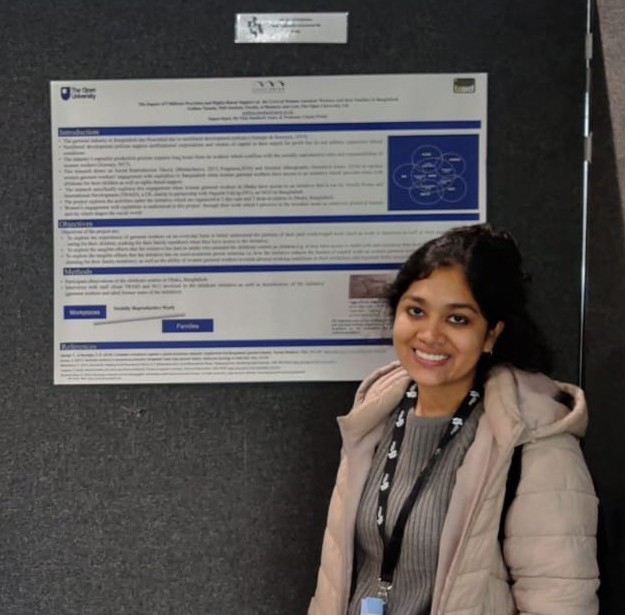
Gulfam Tasnim (pictured) presented a poster at the British Sociological Association (BSA) Annual Conference 2025: Social Transformations. The poster expanded on her PhD project which focuses on the impact of childcare and rights-based support on the lives of Bangladeshi women garment workers and their families. She presented it under the ‘Work, Employment & Economic Life’ stream at the University of Manchester towards the end of April.
Dominique Howard
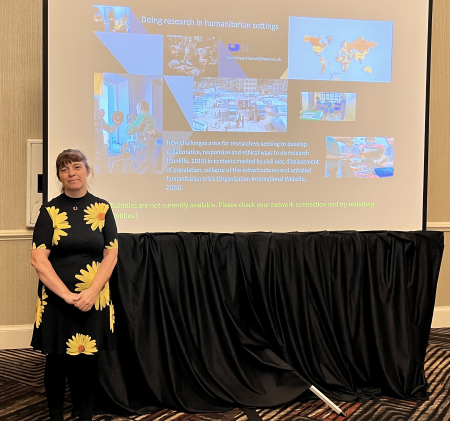
Congratulations to Dominique Howard (pictured) for winning the ‘Most thought-provoking student paper award’ at the renowned International Qualitative Research in Management and Organization (QRM) Conference in Albuquerque, New Mexico, from 15-17 April 2025. Dominique’s paper, ‘Interviewing Differently’, is based on her doctoral research about organisational learning in the humanitarian sector in high-risk environments. She is supervised by Dr Isidora Kourti, Prof Mark Fenton-O’Creevy and Dr Gemma Lord with this prestigious award including mentorship to support submission to a journal, Management Learning.
Louis Dawuda
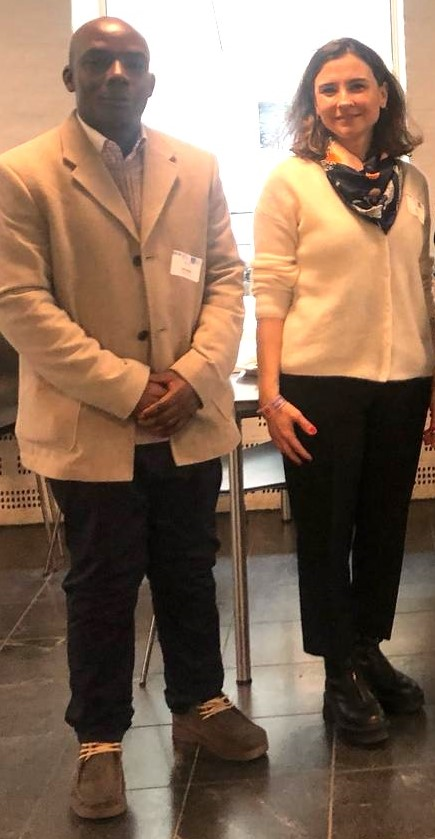
Louis Dawuda attended the 11th International EurOMA Service Operations Management Forum in Copenhagen, Denmark, together with Dr Oznur Yurt as his lead supervisor (both pictured). This specialised two-day conference in the middle of March 2025 was for researchers developing cutting‐edge theory and applicable solutions to challenges in the service industry and academia. Louis said: “The insightful discussions enabled me to gain valuable feedback and to learn from leading researchers and practitioners from the UK, Europe and Asia. It was an inspiring experience connecting with other PhD students and experts in my field of research. The opportunity to explore Copenhagen added an exciting touch to my whole conference experience.”
Zaineb Bouharda
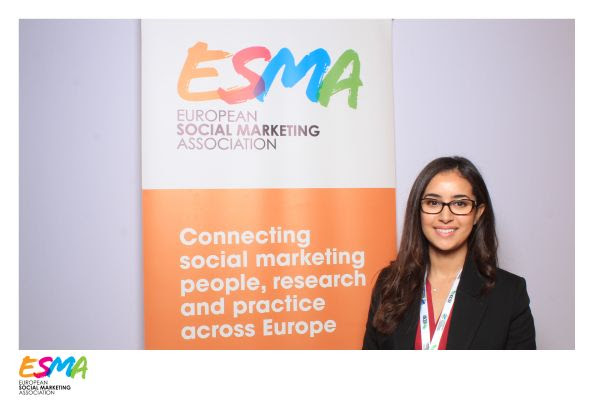
Zaineb Bouharda has presented her PhD research at two prestigious conferences in the second half of 2024.
She was at the European Social Marketing Conference in Ljubljana, Slovenia, a welcoming and highly specialised event from 4-6 November for those using marketing to drive social good.
Zaineb (pictured) said: “This inspiring experience enabled me to connect with social marketing researchers and practitioners from the UK, Europe and the Middle East. I also reconnected with some old colleagues and exploring Slovenia added a memorable touch to the journey.”
She had earlier shared her findings with leading marketing academics, gaining valuable feedback, at the Academy of Marketing Conference in the Welsh capital, Cardiff, in early July.
Tim Stevenson
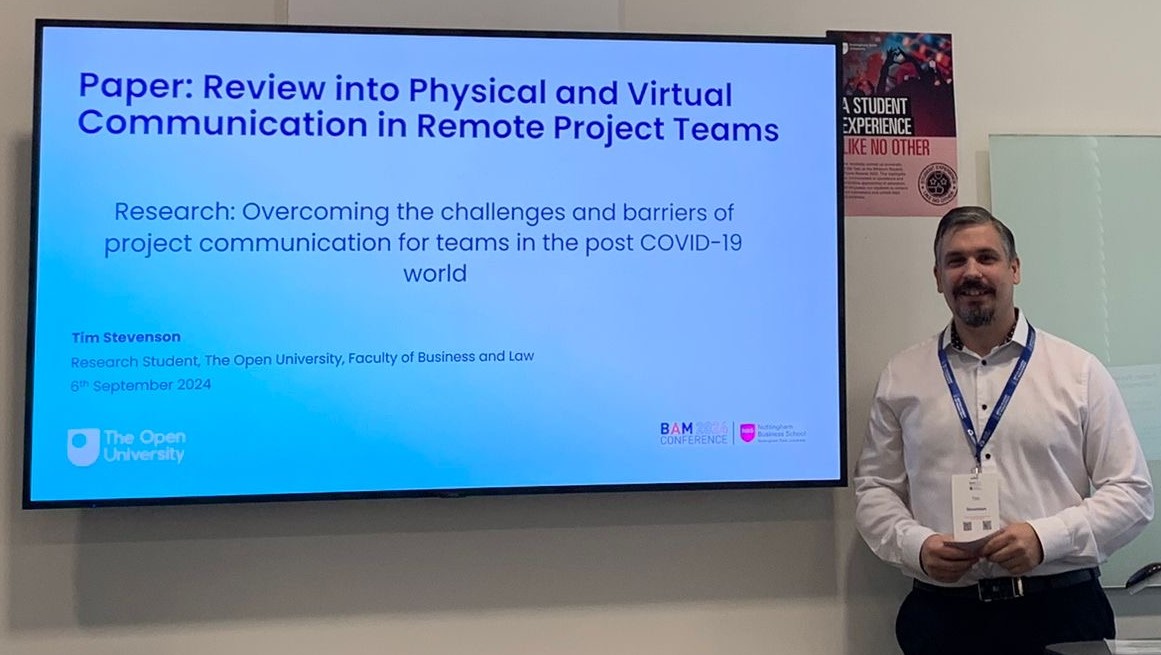
Tim Stevenson (pictured) presented his paper, ‘Review into Physical and Virtual Communication in Remote Project Teams’ at the British Academy of Management Conference (BAM2024) in Nottingham in early September 2024.
The paper covers the first part of his research as organisations have moved from a focus on physical communication to more of a reliance on a virtual communication medium in recent years. This research saw a focused systematic literature review to identify the current field of knowledge on physical and virtual communication within organisations and remote project teams.
Tim said: “This was a great opportunity to discuss my research with others in academia and gain feedback to develop the subject further.”
Stephen Affleck Reid
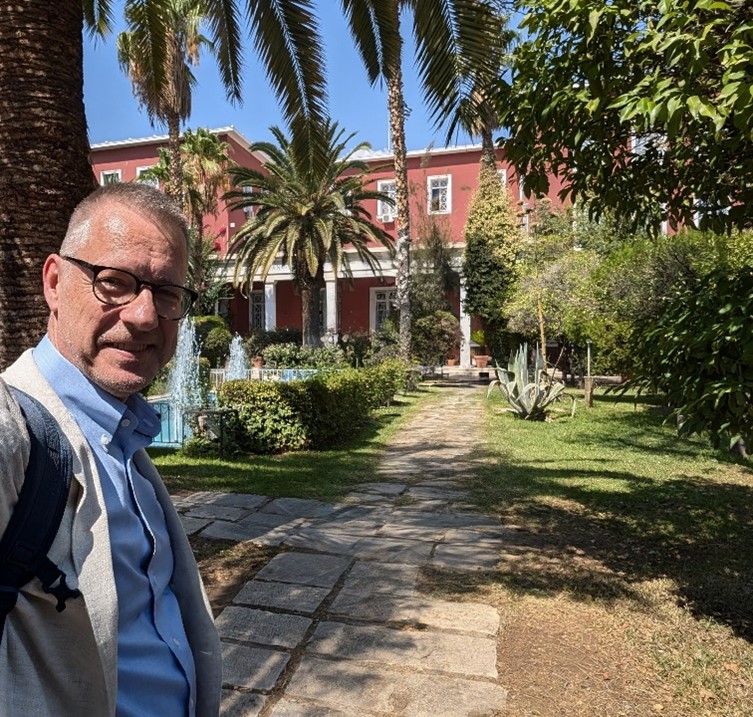
Stephen Affleck Reid (pictured) presented his ‘Strategic organizational values’ paper at this year’s European Group for Public Administration (EGPA) Conference in Greece.
The theme for this annual international conference was ‘Strengthening Democratic Governance for Better Public Policies and Services’.
There were more than 600 participants, mainly from Europe but also from other continents, at the Panteion University of Social and Political Sciences in Athens in early September 2024.
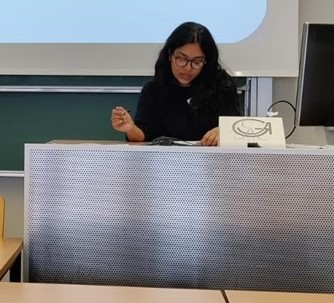
Gulfam Tasnim
First year student Gulfam Tasnim (pictured) presented her project, ‘Exploring the Impact of Childcare Provision on the Opportunities for Women Garment Workers and their Families in Bangladesh’, at the 42nd International Labour Process Conference at Georg-August-University Göttingen in Germany.
Stephen Affleck Reid
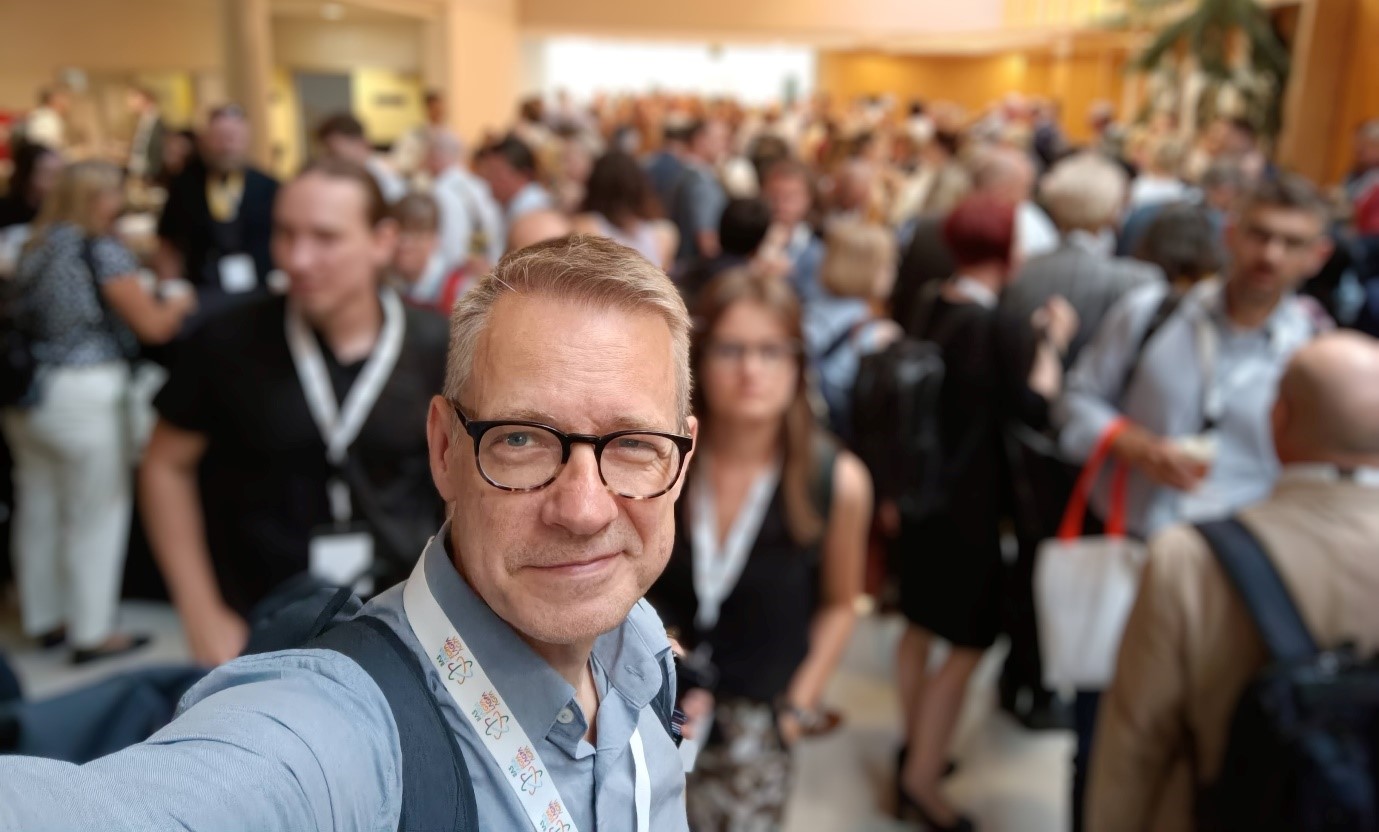
Stephen Affleck Reid (pictured) presented at the European Group of Public Administration (EGPA) conference 2023.
His article, ‘Strategic Management in the Public Sector: a review and re-evaluation of the usefulness of a resource-based view’, is now in process for publication.
The conference in Zagreb, Croatia, was under the organisational umbrella of the International Institute of Administrative Sciences, where EGPA is one of the five sections.
There were more than 550 participants with senior academics, scientists, researchers and experts in public management from 42 countries in Europe as well as the USA, China, Brazil, Indonesia, South Korea, Qatar and Bahrain.
The topic was ‘Steering European Union through Poly-Crisis Storms: the Role of Public Administration’ which the 23 permanent EGPA study groups debated from different perspectives.
Melda Kelemcisoy
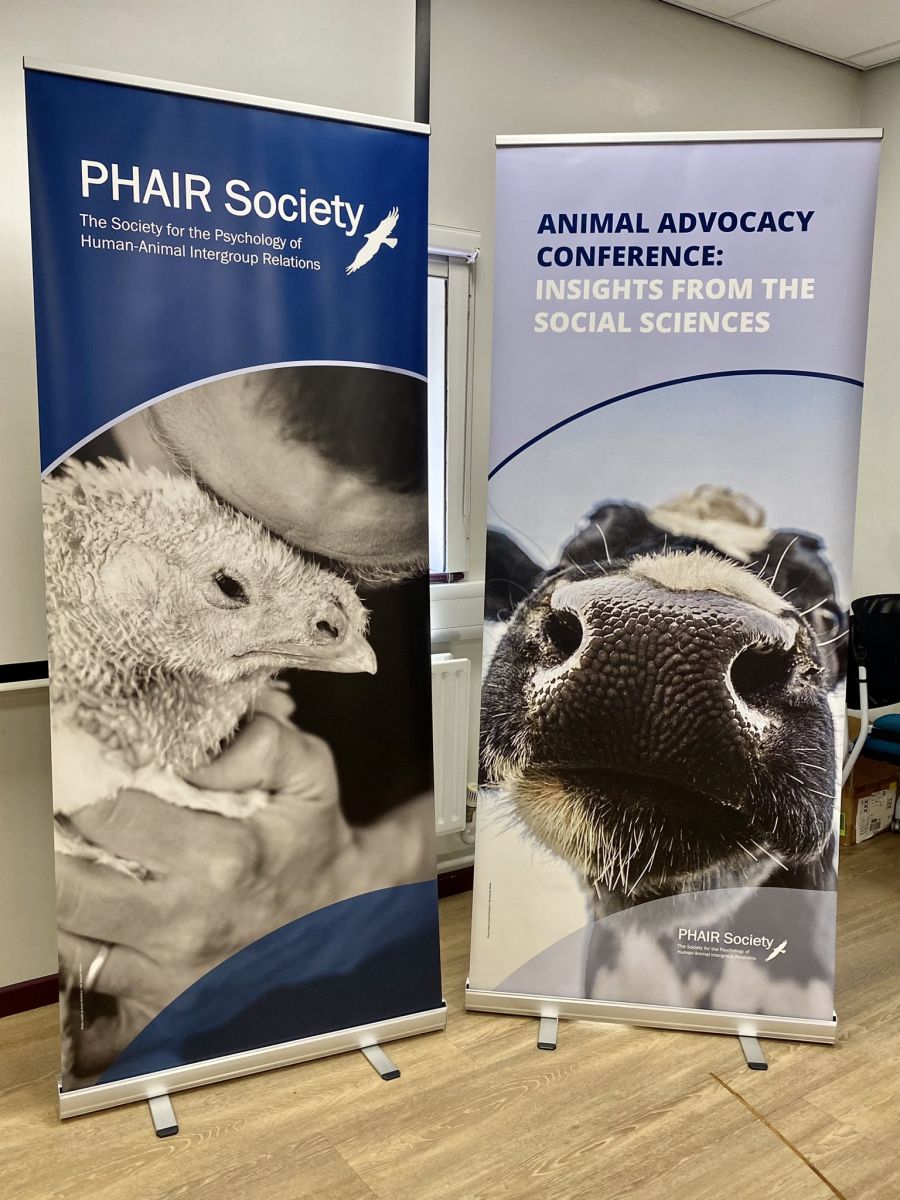
Speaking about the first of two conferences she attended over the summer, Melda Kelemcisoy said: “As a ‘novice’ PhD student who started this February, I’m delighted that I presented my work for the first time at the Kinship in Crisis Symposium in Liverpool, organised by the Centre for Human and Animal Studies at Edge Hill University.
"This was on my current PhD work, ‘The Organization of Anthropocentrism’, which deals with animal advocacy / vegan organisations in the UK and how they resist anthropocentric discourses. I’m very grateful to have received some excellent feedback.”
Melda also attended her first academic conference with her secondary supervisor, OU colleague Dr Matthew Cole, at the University of Kent. She continued: “The Animal Advocacy Conference: Insights from Social Sciences was organised by the Society for the Psychology of Human-Animal Intergroup Relations (PHAIR) and is one of the largest conferences in my field of Critical Animal Studies. It was terrific to meet and share ideas with fellow scholar-activists and vegan sociologists from all over the world!”
Mia Li
Mia Li attended the PhD seminar (Consumption Theory: Canon of Classics) which was directly connected with the Consumer Culture Theory (CCT) Conference in Odense, Denmark. It was organised by the University of Southern Denmark which invited scholars from universities in the UK, Denmark, USA and Finland.
Mia said: “It is the first time that I attended an academic conference and talked about my research with other academics and PhD students who are doing similar research – quite inspiring! I also discussed my PhD project with the CCT faculty members who were friendly and patient with all the students discussing their PhD work, or any research problems / puzzles encountered in exploring the consumer culture theory.”
Theresa Parker

Haute Couture was the theme for this year’s prestigious international conference held by The Standing Conference of Organizational Symbolism (SCOS). Theresa Parker was among the attendees at The American University in Paris (Eiffel Tower pictured).
The global network of academics and practitioners presenting hailed from a diverse variety of disciplines and professional backgrounds to present their perspectives on organisation and management. Some used fashion metaphorically, while others used it literally to highlight sites of overt and covert rebellion and activism.
Practice-based workshops utilised methodologies that allowed delegates to embody fashion industry power structures or walk the runway with professional models.
Theresa said: “Fashion is one of the biggest global industries but as a discipline is frequently underrated and underexplored in academia. As a fashion practitioner doing a PhD in FBL, it has been refreshing to see that some of the research presented eloquently recognised its potential value in more interdisciplinary ways organisationally, socially, philosophically, historically and culturally.”
Vickie Williams
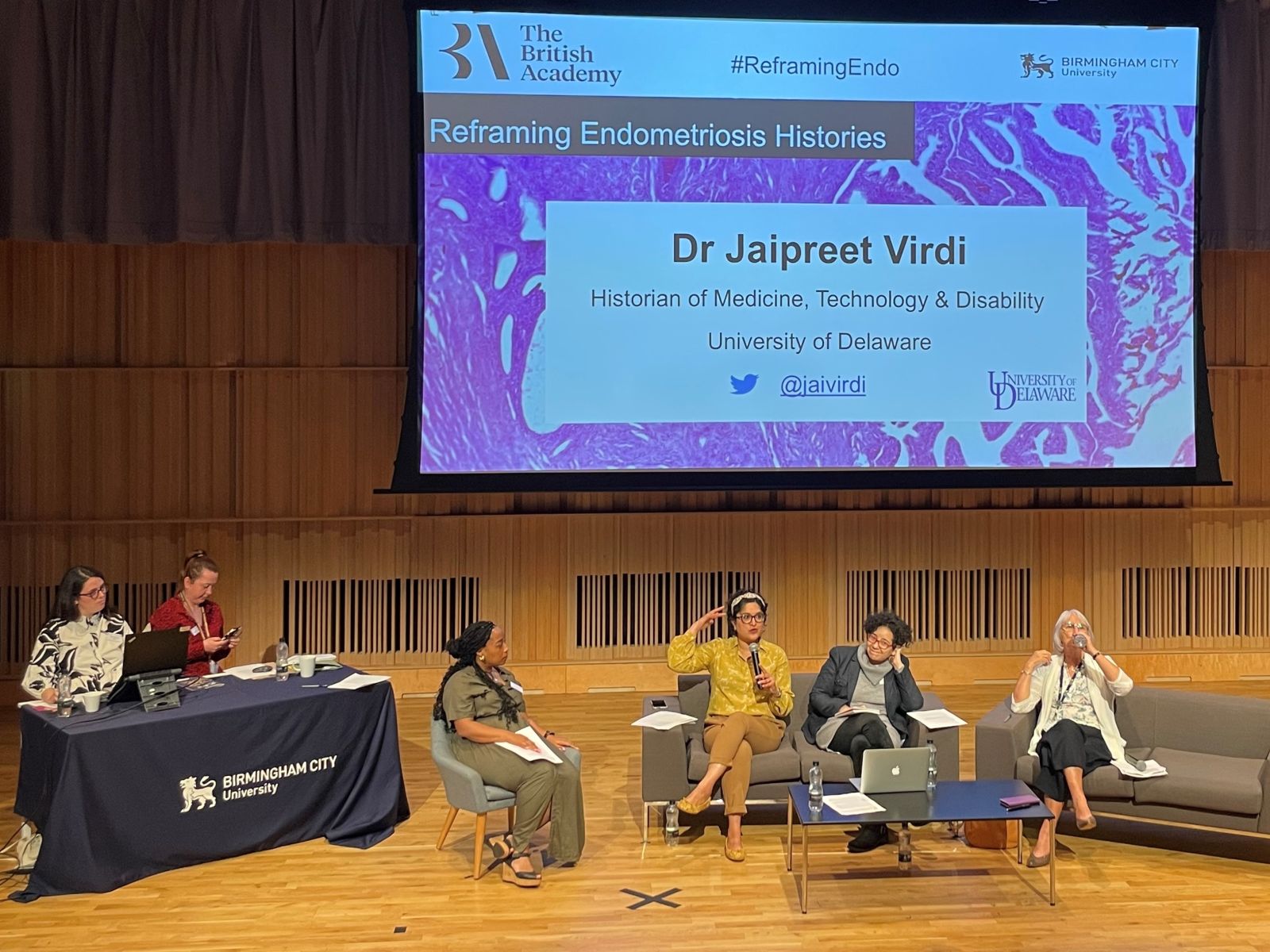
Vickie Williams recently attended ‘Reframing Endometriosis: Power, Politics and Potential Futures’. This was the first multi-disciplinary academic conference to bring together UK and international endometriosis social science researchers alongside (bio)medical researchers, third sector representatives and independent researchers and authors. It focused on how the categorisation of endometriosis influences how the condition is understood and experienced today, as well as building a powerful conversation on potential inclusive futures.
She said: “It was interesting to hear speakers discuss the historical framings of endometriosis as a ‘wandering womb’, ‘hysteria’ and ‘career woman’s disease’ which still underpin many of the challenges faced by people living with the condition.”
Panellists also explored the intersectional lens of endometriosis and the marginalisation of gendered, racialised and disabled bodies, as well as a new body of medical research suggesting the systemic (whole body) nature of endometriosis, as opposed to a purely gynaecological disease.
Jessica Heddenhausen, Mingru Li and Chinedu Nevo (with Alina Kislova)
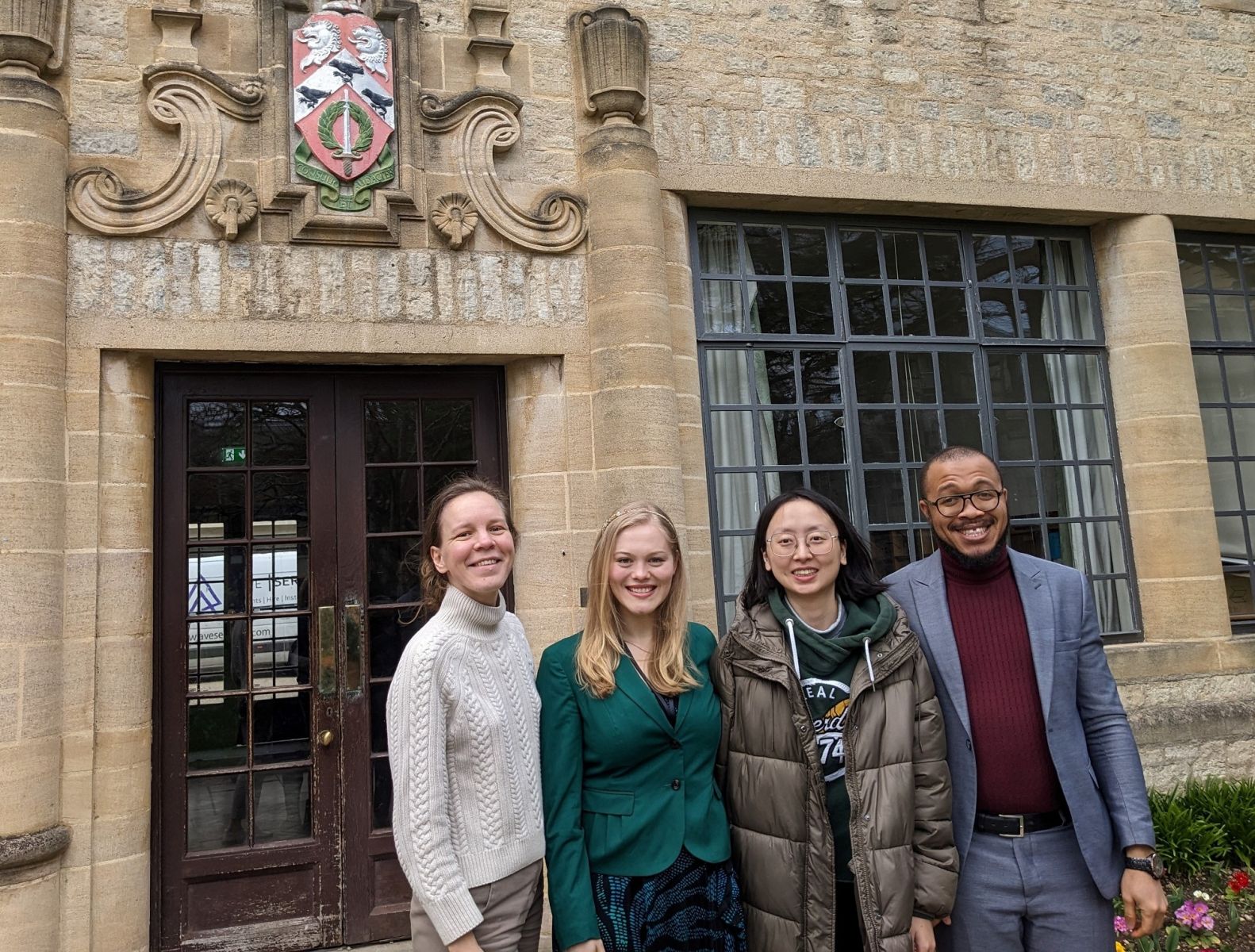
A quartet of our students – Alina Kislova, Jessica Heddenhausen, Mingru Li and Chinedu Nevo (pictured, left to right) – were at the ‘Social Sciences Impact Conference: Hope into Action’ at the University of Oxford’s St Anne’s College in March.
Although each had initially been unaware of the attendance of the others, they soon discovered each other within the close social sciences research community. So not only did the conference discuss the power of (international) research and collaboration, it also demonstrated the social sciences network in action!
Originating from Russia, Germany, China and Nigeria, the students were inspired by the host of cross-country research and international speakers (from Holland, Mexico, Spain and many more) who emphasised the importance of building impact through inclusive research and collaboration between academia, businesses and charities. For example, the University of Oxford works with the Autism Community Research Network Southampton (ACoRNS), investigating the views and experiences of marginalised autistic children and young people within education to reveal opportunities for social improvement.
The themes, ‘Social Sciences Impact’ and ‘Hope into Action’, framed discussions about the ecological impact in low and middle-income countries from the global south (such as issues of safe water), the legal impact of safeguarding children (from sexual exploitation), and the well-being impact of lifelong health and women’s health in the workplace, alongside business solutions that may advance the UN’s Sustainable Development Goals.
Expert panels, case studies, round table discussions, workshops and many more formats showcased the many possibilities for collaboration and knowledge transfer. A panel discussion on policy (particularly applicable to Jessica’s research on sustainable farming) and follow-up networking opportunities empowered the students with tools that will transform their own research into social science impact. Even promotional booths offered access to knowledge transfer partnerships and networks such as Oxentia, a training and consultancy service specialising in social impact from knowledge exchange and commercialisation, with whom the OU has also been involved.
Following the conference, the students walked through the streets of Oxford which reminded them of famous intellectuals, books and movie scenes! They discussed opportunities for collaboration and early career development that they hope will lead to similar impacts to those witnessed at the conference.
Olga Solovyeva
I attended the Responsible Business Conference 2023 at Chatham House in February which attracted many specialists from non-governmental organisations (NGOs) and the business sector working on sustainability, corporate social responsibility (CSR) and corporate advocacy. Several panel sessions sparked debates on topics of geopolitical impact on businesses, sustainability strategies, and the pace and effort of tackling climate change. The conference’s general call was to think through new ways for corporate leaders to adopt more sustainable and responsible practices in conflict-affected and high-risk areas.
A few weeks later, I presented some of my PhD research findings at the University of Helsinki’s Russian Media Lab and spoke about the political responsibility of business in authoritarian regimes, taking the case of one Russian IT company. My presentation was well received by Finnish colleagues who are interested in building an understanding of their next door neighbour!
Alessandra Fenu
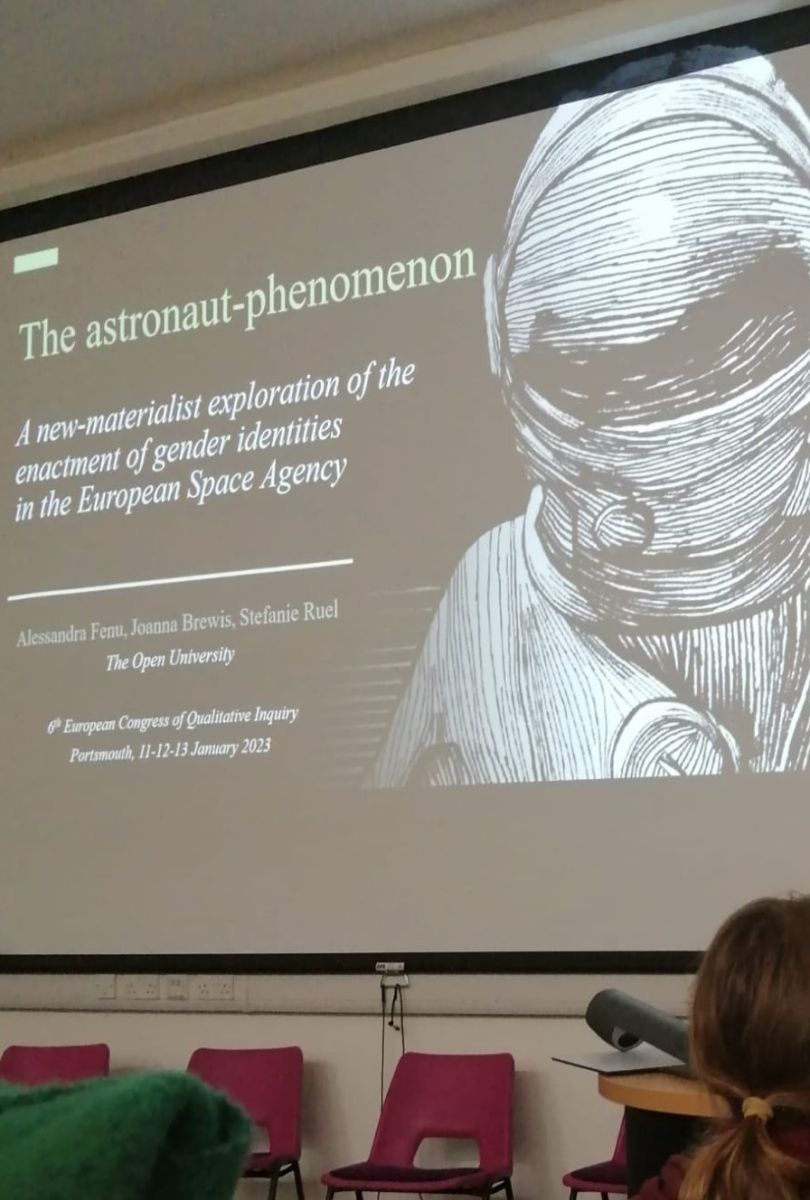
I presented my research during the Congress of the European Network of Qualitative Inquiry, hosted by the University of Portsmouth, in January 2023. This was on ‘The astronaut-phenomenon: a new-materialist exploration of the enactment of gender identities in the European Space Agency’.
As a first year PhD student at my first international conference, I felt very welcomed by such a supportive community. It offered a wonderful space to discuss and rethink my research in unexpected and creative ways within a (post)anthropocentric (‘human centred’) framework, sharing knowledge and thoughts with academics and students.
Olga Solovyeva
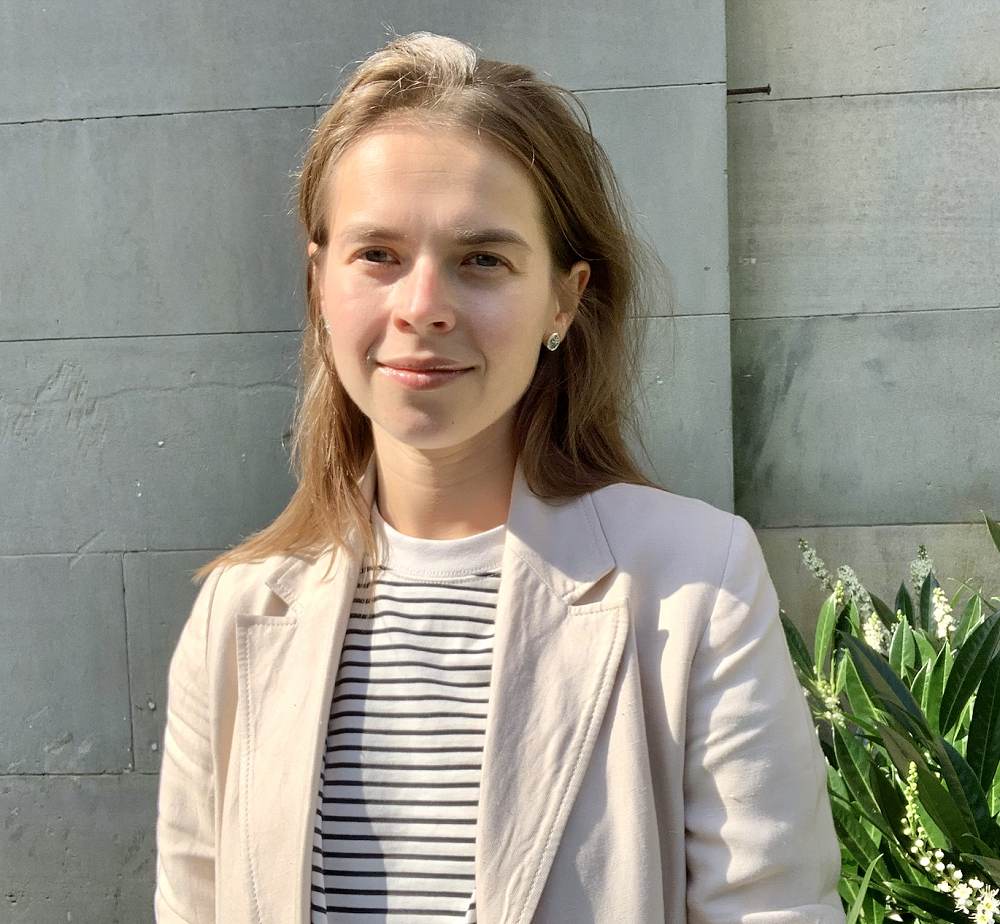
I presented at the 20th International Studying Leadership Conference (ISLC), hosted by the University of Sussex Business School, in December 2022. This was focused on the concept of apolitical leadership, which occurs when the business company chooses to stay beyond politics in a problematic political climate. This encourages a certain level of self-censorship among the employees and may lead to cases of ethical blindness or collective myopia when employees tend not to notice unethical practices of the company. The presentation was well received and I gained many great tips and advice.
Clark McAllister and Struan Barr
The 19th annual Historical Materialism conference was held in-person at SOAS, London, in November 2022.
One of our attendees, Clark McAllister, said: “I was thrilled that my book, Karl Marx’s Workers’ Inquiry: International History, Reception, and Responses (pictured), was the basis for a discussion. The book, which was published by Notes From Below and is freely available online, collects translations and reproductions of Marx’s 1880 survey, The Workers’ Inquiry, from across the world.”
Struan Barr
Reimagining Platforms was a one-day symposium (31 October 2022) at the University of Edinburgh, organised and funded in collaboration with the University of Toronto. The final keynote and morning sessions, which took the form of panel discussions preceded by short papers, presented a view of platforms as a media that can be studied materially, and the afternoon session instead foregrounded qualitative methods.
Princess Anifowose
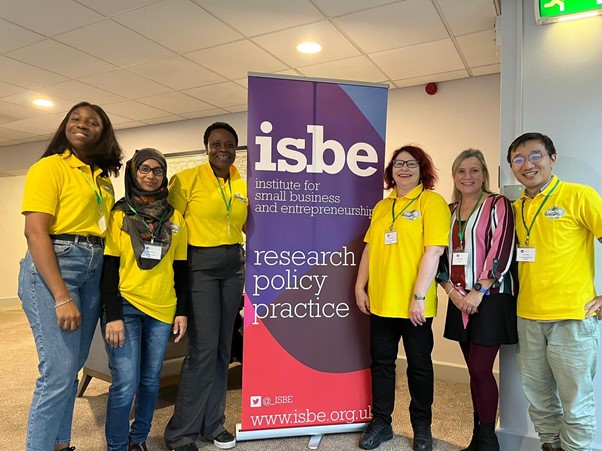
ISBE 2022, organised by the Institute for Small Business and Entrepreneurship (ISBE), was my first in-person international conference, and it was quite a thrilling experience. I (shown far left of photo) attended the doctoral day and then the conference and it was true engagement with a wealth of knowledge for the three days in late October 2022.
The one-day doctoral day in Guildhall, York, was worth the attendance. I particularly liked the aesthetic of the venue which was medieval. This medieval history would later be described by one of the facilitators, for how it represented the entrepreneurial culture of York (a number of the items and pieces in the hall were from both ancient and modern enterprising craftsmen). The doctoral day was also a welcome avenue for my OU colleague and friend, Suzzie Aidoo, and I to comfortably meet some research students from other universities, within and outside the UK, prior to the main conference starting the following day. We all displayed our posters prepared for the doctoral day as an introduction to our studies and research area.
The presentations from leading UK academics – such as Prof Paul Jones from Swansea University and Prof Kiran Trehan from York University, and other inspiring academics (see here) – were truly interesting. These spanned introductory to more extensive explanations on areas around small business and related field on entrepreneurship, to also include discussions on useful methodologies in qualitative and quantitative studies. The doctoral day ended with granting awards to exceptional posters and a dinner in the evening to welcome and kick-off the conference the following day. I wasn’t able to attend but heard it was a warm and enjoyable one for all who did (as it was my day of arrival, I needed to do a little settling at the hotel in preparation for the next day).
I was part of the team of volunteers for the conference at the Principal York hotel, and it was a rewarding experience. A major challenge for me was having to memorise the different floors and rooms where the different tracks would take place. However, it eventually became a fun race between the volunteers, to settle delegates in the right track room or conference hall, and we’d have a little laugh as we passed each other doing this!
On this first day of the conference, I had a presentation in one of the tracks (social, environmental and ethical enterprise) and was relieved and glad that the presentation went better than I thought as I was nervous. I understood the kind words spoken in the morning that everyone present – both leading academics and students – were there to help the work and not tear it down. I was glad to have support from one of my supervisors, some old and new colleagues, and friends there to cheer and give feedback. We also attended each of our presentations to cheer, encourage and learn more about what we were studying.
I was a little nostalgic when it came to the end of the conference when we all had to leave. The next year’s location was announced and everyone was encouraged to keep the conversations and research growing as we got to know more about small business strategies contexts and process from around the world.
A final highlight was a little tour of York, with a couple other research students, just before heading to the station to catch our trains. I had an enjoyable and insightful time, meeting old friends and colleagues, making new ones and taking in the beauty and heritage of York. I look forward to my next conference adventure a bit more confidently, to definitely share and learn.
Suzzie Aidoo
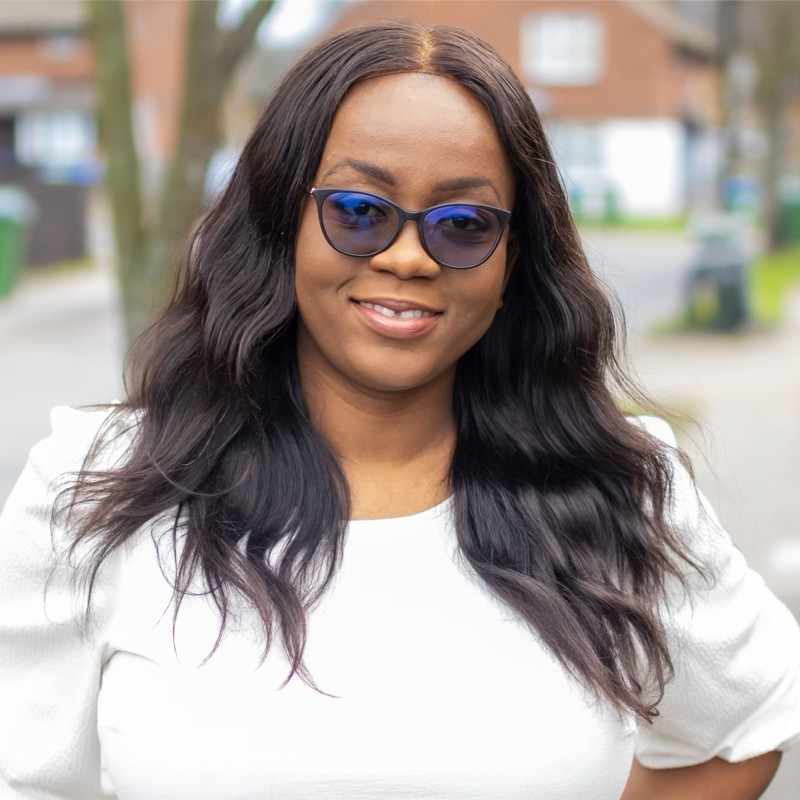
I also attended this conference, organised by the Institute for Small Business and Entrepreneurship (ISBE 2022), in York in late October 2022, structured as a doctoral day and then the conference talks and presentations.
I attended the doctoral day activities which included sessions on developing articles for publications, undertaking a successful viva among others, and also participated in the doctoral poster presentations. The conference was focused on the theme, ‘New Approaches to Raising Entrepreneurial Opportunity: Reshaping inclusive Enterprise, Policy, and Practice Post-Pandemic’. Presentations focused on addressing inequalities, sustainability, strategies for leveraging new opportunities, and new models of engagement at the macro and meso levels of business and economic development.
I presented on some elements of my thesis in the ‘SME performance’ track on how firms can leverage all resources to enhance performance in this time of economic difficulty.


